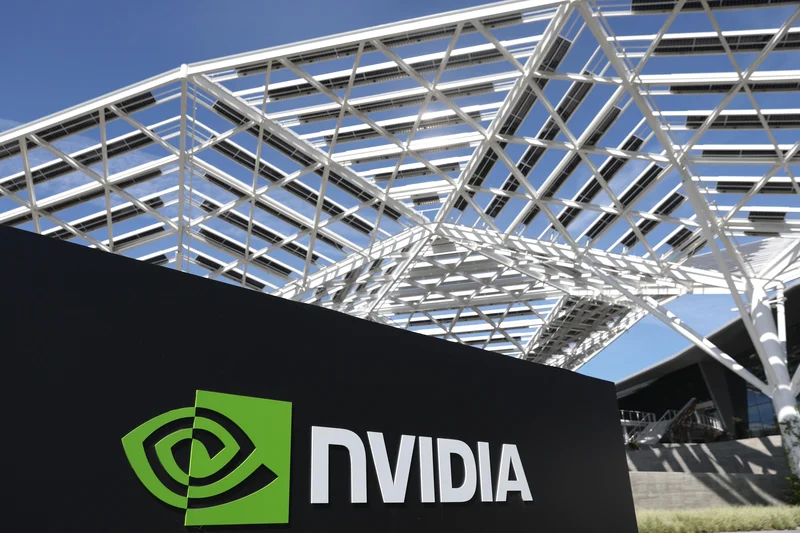Robot Ambitions: Solid-State Batteries and AI Chips
Alright, let's talk about Xpeng and their sudden robot obsession. The Guangzhou-based EV maker says they're going all-in on humanoid robots, powered by solid-state batteries, by the end of 2026. Ambitious? That's one word for it. Delusional? Let's dig into the numbers before we jump to conclusions.
Robots, Batteries, and Vaporware
Xpeng's CEO, He Xiaopeng, claims robots are "the most likely product to drive the mass production and adoption of all solid-state batteries." Bold statement, considering solid-state batteries are still largely theoretical for EVs. They supposedly offer greater safety, power, and faster charging, but nobody's cracked the code on mass production yet. Battery makers like Toyota and CATL are aiming for 2027, but even they admit mass commercialization is "years away." So, Xpeng wants to leapfrog everyone else with robots?
It's a classic tech play: promise the moon to get investors excited. Xpeng is supposedly in talks with two suppliers (one Chinese, one foreign) for these batteries, but won't name names. Red flag. It reminds me of WeWork's S-1 filing, brimming with "community adjusted EBITDA" and other nonsensical metrics. This whole thing smells a bit like that.
The idea is that solid-state batteries will reduce the weight of these robots. Okay, makes sense. But how much weight are we talking about? What's the energy density they're targeting? The article doesn't say. That's detail number one that I find genuinely puzzling. Without those figures, this is just marketing fluff.
The Tesla Connection (and Disconnect)
Xpeng’s co-president, Brian Gu, draws a parallel with Tesla, saying both companies are "focused on using technology and AI to really disrupt the physical world." Sure, both make EVs, but Tesla's robot play (Optimus) is still in the very early stages. And Tesla, for all its faults, has actually delivered something tangible in the EV space. Xpeng? They're still trying to catch up.
Xpeng wants these robots to be salespeople and tour guides in their own company. Okay, that's…niche. They also plan to use them in factories under a partnership with China’s largest steelmaker, Baowu. Again, vague. What exactly will these robots do in a steel factory? Are they welding? Are they moving materials? The lack of specifics is deafening.

HSBC analysts put it bluntly: the energy density of solid-state batteries is "only moderately ahead of liquid-state batteries" and their equipment cost is significantly higher. "This leads to no obvious competitive advantage of a solid-state battery when it is first launched," they wrote. Ouch.
They’re betting that the high-end, low-volume application of robots will be the perfect proving ground for solid-state tech. The question is: are these robots a genuine product roadmap or a shiny distraction?
Autonomous Catalysis and Bionic Boosts: A Reality Check
The article mentions that Japanese electronics makers Panasonic and Maxell have plans to install solid-state batteries in industrial robots. Okay, that's a data point in Xpeng's favor. But industrial robots are a far cry from humanoid robots. We're talking about controlled environments versus the chaos of the real world. It's the difference between a lab experiment and a street fight.
And here's where my skepticism kicks into high gear. The timeline. Xpeng wants to produce the first batch of robots by the end of 2026. That's less than three years away. Given the challenges in solid-state battery development and the complexities of humanoid robotics, that timeline seems… optimistic. (That's putting it mildly.) According to a Chinese EV maker plans to use solid-state batteries in humanoid robots, Xpeng is planning to launch these robots with self-developed AI chips.
I've looked at hundreds of these filings, and this particular claim is unusual. It’s not just about technological feasibility; it’s about economic viability. Can Xpeng really produce these robots at a price point that makes sense? Or will they be burning cash faster than a crypto startup during the 2021 bull run?
It's a Tech Demo, Not a Revolution
Xpeng's robot ambitions smack of desperation. They're chasing the next big thing to boost their stock price and stay relevant in a crowded EV market. Solid-state batteries are promising, and robots are cool, but the combination feels like a science project, not a serious business plan. I am betting that even if the technology works, the robots will be too expensive to be practical.
Related Articles
Dash: Really?
Okay, so the Portland Thorns clinched a home playoff game. Big freakin' deal. Let's be real, does an...
Alexandria: Goal-Line Stop and Football Season's End
Football, Loss, and a Life Cut Short: The Unfolding Data Alexandria's Quarterfinal Heartbreak: A Sta...
Jensen Huang Declares AI's Industrial Revolution: What It Means for the Future and His Surprising Take on US Policy
When Nvidia's CEO, Jensen Huang, held up a silicon wafer last week, it wasn't just a piece of techno...
DWP Power Outage: What Happened and Customer Reactions
Okay, folks, let's talk about something that didn't happen, or rather, happened so fast it barely re...
Anthropic's AI Education Pilot in Iceland: What Does This Mean for the Future of AI Literacy?
Anthropic's Iceland AI Education Pilot: Are We Witnessing the Dawn of Personalized Learning for All?...
Google's Space Datacenters: What's the Point and Who Asked For This?
Google Wants to Put Data Centers in Space? Yeah, Right. Google, huh? Space data centers. Project Sun...





